


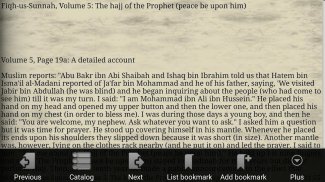
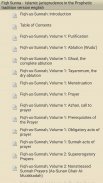
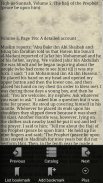
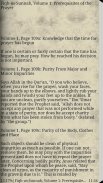
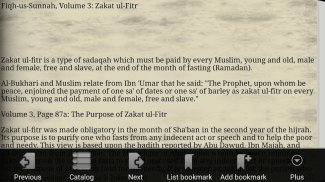
Fiqh Us-Sunnah By Sayyid Sabiq

Mô tả của Fiqh Us-Sunnah By Sayyid Sabiq
...Sabiq's most famous book was the three-volume Fiqh As-Sunnah, which in the first writing of its kind brought the four major madhahib together, in a comprehensive treatment of Fiqh matters. The book has since been translated into dozens of languages and is used by Muslims throughout the world. Sabiq wrote Fiqh As-Sunnah in the 1940s when he was only 30 years old. He wrote the book at the request of Ustadh Hassan al-Banna, the founder of the Muslim Brotherhood. Every Fiqh ruling in the book goes back to the Qur'an and Sunnah and Sabiq dealt with all four madhahib objectively, with no preferential treatment to any. Sabiq also wrote the book, "Islamic Theology," along the same lines: simplification and avoidance of overphilosophization or getting involved in disputes on arcane topics. Besides his academic work, Sabiq was a noted Islamic activist. After writing Fiqh As-Sunnah, Sabiq spent some time fighting along with the Mujahideen in Palestine in the late 1940's and he later visited most countries in the world and lectured in their mosques. He was the first graduate of Azhar to visit the Soviet Union and check on the conditions of Muslims there. Sabiq was born in 1915 in the Egyptian village, Istanha. He received his education at Al-Azhar and after his graduation worked as the Director of Mosques and Islamic Education in the Egyptian Islamic Affairs Ministry. He also taught at Al-Azhar, and later moved to Saudi Arabia, where he headed the Shari'a Graduate Studies Department in Um Al- Qura University. After moving back to Egypt, he spent years teaching students in a Mosque in Cairo
Translated By Muhammad Sa'eed Dabas & Jamal al-Din M. Zarabozo
The Contents of the 5 Volumes in this Book.
Volume 1: Purification and Prayer
-Purification and Prayer
Purification
Ablution (Wudu')
Ghusl, the complete ablution
Tayammum, the dry ablution
Menstruation
Prayer
Azhan, call to prayer
Prerequisites of the Prayer
Obligatory acts of prayer
Sunnah acts of prayer
Volume 2: Supererogatory Prayer
Supererogatory Prayers
Nonstressed Sunnah Prayers (As-Sunan Ghair Al-Mu'akkadah)
The Witr Prayer
The Late Night Prayer, tahajjud (qiyam al-Layil)
The Special Prayers during the Month of Ramadan (Tarawih)
The Duha prayer
Salatul Istikharah
Salatul Tasbih
Salatul Hajah, the prayer for need
Salatul Taubah, the prayer of penitence
Salatul Kasuf, prayer of the solar and lunar eclipse
Salatul Istisqa, prayer for rain
The Prostration During the Qur'anic Recitation
The Prostration of Thankfulness (Sajdat ush-Shukr)
Prostrations of forgetfulness during the prayer
Volume 3: Zakaat and Fasting
Zakah in Islamic Jurisprudence
Monetary holdings subject to zakah
Zakah on plants and fruit
Zakah on Animals
Zakah on Buried Treasure and Precious Minerals
Zakah on Wealth Extracted from the Sea
The Recipients of Zakah
Zakat ul-Fitr
Zakat ut-Tatawwu or Voluntary Sadaqah
Fasting (As-siyam)
The Fast of Ramadan
The Forbidden Days to Fast
Voluntary Fasts
The Manners of Fasting
Acts That are Permissible During the Fast
Actions that Void the Fast
Making Up Missed Days of Ramadan
Night of Qadr
I'tikaf or Seclusion in the Mosque
Volume 4: Funerals and Dhikr
Sickness, Expiation of Sins
Contemplation of death and preparation for it by good deeds
Al-Kafan (The Shroud)
Funeral Prayers (Salatul Janazah)
Burial
Azh-zhikr (remembrance of Allah)
Supplications
Volume 5: Hajj and 'Umrah
Pilgrimage: a general definition, its excellence and prerequisites
The ability to perform hajj - what does it imply?
The hajj of the Prophet (peace be upon him)
Mawaquit: Fixed Times and Places For Ihram
Ihram
Talbiyah
What is permitted to a Muhrim
Restrictions of Ihram
Killing a game in the state of Ihram
Sacred precincts of Makkah and Madinah (Haram Makkah wa Madinah)
Tawaf or Circumambulation around Ka'bah
Sa'i between Safa and Marwah
Staying at Mina and Arafat
Umrah

























